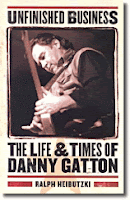 Paul W. Kahn is Robert W. Winner Professor of Law and the Humanities, and Director of the Orville H. Schell, Jr. Center for International Human Rights at Yale Law School.
Paul W. Kahn is Robert W. Winner Professor of Law and the Humanities, and Director of the Orville H. Schell, Jr. Center for International Human Rights at Yale Law School.His most recent book is Out of Eden: Adam and Eve and the Problem of Evil, which David Luban called "an extraordinary, deeply original reflection on the nature of evil."
I recently asked him what he has been reading. His reply:
Kahn teaches in the areas of constitutional law and theory, international law, cultural theory and philosophy. Before going to Yale in 1985, he clerked for Justice White in the United States Supreme Court and practiced law in Washington, D.C., during which time he was on the legal team representing Nicaragua before the International Court of Justice. He is the author of Legitimacy and History: Self-Government in American Constitutional Theory; The Reign of Law: Marbury v. Madison and the Construction of America; The Cultural Study of Law: Reconstructing Legal Scholarship; Law and Love: The Trials of King Lear; Putting Liberalism in its Place; and Out of Eden: Adam and Eve and the Problem of Evil. He earned his B.A. from the University of Chicago and his Ph.D. in Philosophy and J.D. from Yale.I think of my day as organized around what I am reading. I read for different purposes throughout the course of the day. I write in the mornings, so I read books then that help me with my current project, which is a book on torture and terror. My morning reading now is Lynn Hunt's Inventing Human Rights and Robin Wagner-Pacifici's The Art of Surrender.
In the early afternoon, I read books that are relevant to what I am teaching -- currently courses on violence and human rights. My early afternoon reading now consists of a lot of Hannah Arendt, including The Promise of Politics and The Origins of Totalitarianism, along with Jonathan Schell's classic The Fate of the Earth (full disclosure: I am coteaching a course with Jonathan this term). Jeremy Waldron, by the way, has an excellent response to the recent Arendt revival in the March 15 issue of the New York Review of Books -- also on my regular reading list.
I read/listen to a lot of recorded books in the car, between my home and my office. Driving, I enjoy both fiction and popular history. Right now, I'm into Colm Tóibín's wonderful novel about Henry James, The Master, and Doris Kearns Goodwin's Team of Rivals, about Lincoln's cabinet. Particularly interesting to read together, since they are writing from such different perspectives about the character of 19th century Americans: politicians versus intellectuals.
Late at night, I read about whatever is on my mind, often science. Having just seen Al Gore's documentary An Inconvenient Truth, I turned to Jared Diamonds' Collapse, hoping for some help on how to stave off environmental disaster. So far, things are not looking too good for us.
Read the Page 69 Test results for Out of Eden.
--Marshal Zeringue



















































